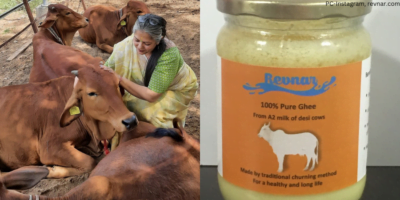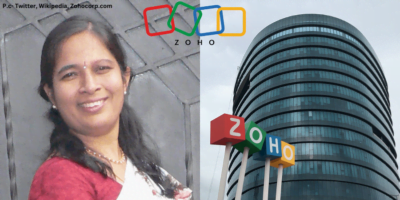Menstrual hygiene is a big concern in India. Society still treats it as a taboo. The problem exists on a large scale and has harmful effects on the health and well-being of women.
Khyati Gupta, during her teenage years, became sensitized towards the issue. To empower women and improve the condition of menstrual hygiene in India, she with the help of like-minded people like her, started the Pinkishe Foundation.
Menstrual Hygiene in India
One day, Khyati observed the clothes of her maid’s daughter. She saw bloodstains on them. When she asked her maid, she found out that her maid recycled unhygienic pieces to cloth to use during her menstrual cycle. It disheartened her to hear this. She researched further. Through her research, she found out that most women in Rural India weren’t aware of menstrual hygiene.
Some of them didn’t even have access to pads. They used cow dung, leaves, sand, etc. Using unhygienic products can lead to reproductive tract diseases, which can also lead to cervical cancer.

Beginning of Pinkishe Foundation
Gradually, Khyati and people similar to her who shared the same compassion came together and started joining hands. Hence, the ‘Pinkishe Foundation’ was born.
Padbank is a program under the Pinkishe foundation. It is a nonprofit self-sustained organization. Members of the foundation run branches of Pandbank from different parts of the nation. Initially, the volunteers collected pads from donors. With time, they started manufacturing sanitary pads on their own.

Padbank Program
The initiative began in 2017. Under this program, volunteers manufacture sanitary pads. The pads made are biodegradable and environment-friendly. The sanitary napkins are reusable, leakproof, and comfortable. The women who make them achieve economic independence. The Padbank program is helping in women’s empowerment. Qualified doctors and volunteers also educate the women regarding menstrual hygiene.

Padbank Working Model
The Pinkishe Foundation works in two ways. The team of volunteers identifies a rural area where help is required. Then, free sanitary napkins for one period cycle are provided.
The other initiative under the program Padbank is known as ‘Community Adoption’. Under this method, the volunteers adopt a village for two years. During this period, rigorous surveys are conducted, and they make periodic interventions until the rural area becomes completely compliant.

Achievements
Till now, over 400 camps of Padbank have been set up in India. Sanitary pad vending machines are set up in 9 colleges. Two villages have become 100 percent compliant, and over 60,000 girls have been supported through this program.
Padbank has also helped by contributing by sending sanitary napkins during Kerala food relief and Fani cyclone relief.

Objective of Pinkishe Foundation
The Pinkishe foundation aims to raise sanitary hygiene awareness in the country. The foundation wants to manufacture sanitary napkins on a large scale and make them available for everyone. Also, they want to ensure that the sanitary napkins they manufacture do not harm the environment. They also wish to empower women and make them financially independent.

To know more about the Pinkishe Foundation, please check – Website, Instagram, Facebook and LinkedIn.
If you know more inspirational stories about a person, company, new idea, or social initiative, and want us to write it on mad4india.com, share such information with us on Facebook or LinkedIn.


